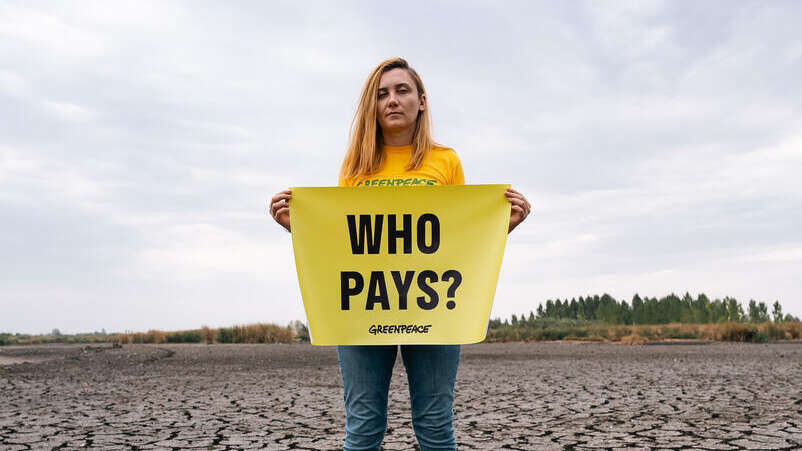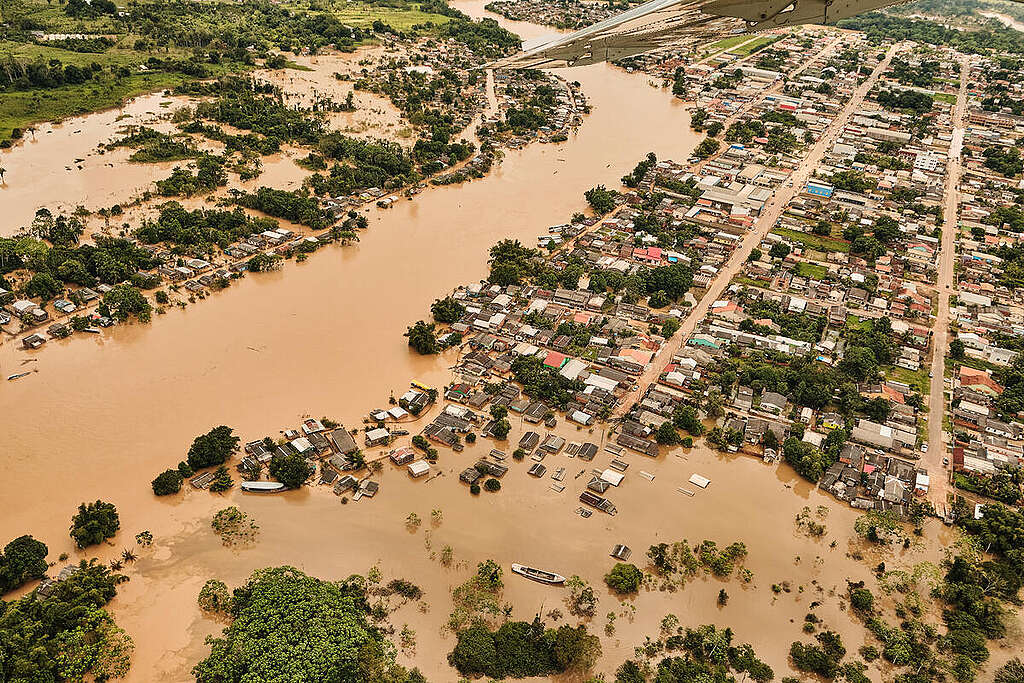
As governments and communities around the world face growing costs from devastating climate impacts, there's a looming elephant in the room: The billionaire-polluter class has never had it so good.
Profits of oil and gas corporations remain obscenely high. Five companies alone (ExxonMobil, Chevron, Shell, BP, and TotalEnergies) reported over US$100 billion cumulatively in profit for 2024 and Big Oil firms are handing shareholders more money than ever, while promising even more payouts through dividends and share repurchases in the future.
Meanwhile, 2024 was the hottest year on record globally, with over 150 unprecedented extreme weather events, fuelled by the greenhouse gas emissions of the oil and gas industry. From Kathmandu to Dubai, the Philippines, North and South America, no part of the world is left untouched.
People over profits
Why should people suffering the impacts of extreme weather be left with the bill, when the corporations who fuelled the crisis, obscured the science about climate change and lobbied against action are allowed to continue to pollute our planet and make huge profits? With half of the world's CO2 emissions coming from just 36 fossil fuel firms, and 89% of global CO2 emissions coming from fossil fuels and industry alone, we're talking about a sector that has damaged the health and livelihoods of communities around the world for decades. The devastating case of Shell in the Niger Delta, which has caused babies to be born with birth defects and significantly reduced the productivity of local farming and fishing, is just one of many examples.
There's no shortage of money – this is about political will. That's why the Polluters Pay Pact is calling for bold taxes and fines on greedy oil and gas corporations and other polluters to make them pay for the damages they have caused and help communities across the world recover, rebuild and invest in climate solutions.
Public pressure for urgent action is growing by the day. Polling in June 2024 across all G20 countries found that, on average, 71% of people support the idea that "people and companies that pollute the environment for example by causing greenhouse gas emissions should pay higher taxes, with the money raised shared out among people and companies who pollute less."
Big opportunities to make polluters pay in 2025
So what are the big opportunities to make polluters pay in 2025? Thanks to the work of many inspiring activists around the world, the momentum is already here and growing. Now it's up to us to raise the pressure on political leaders so that their warm words turn into real action. Here's some of the moments where we have a chance to work together to push for big change:
- United Nations Tax Convention: Governments will begin official negotiations in August for a new global tax agreement that could include new rules to make multinational oil and gas companies pay their fair share.
- 4th International Conference on Financing for Development: Country leaders will meet in July at a big United Nations conference in Spain to discuss ways to make the global economic system fairer. It's a big chance to raise the pressure on making fossil fuel polluters pay up.
- Global Solidarity Levies Task Force: 17 countries and groups of countries have joined a new coalition focused on taxing polluters more to raise money for climate action and development. They have promised to make tangible commitments this year. We call on them to act without delay.
- Baku to Belém Roadmap to US$1.3 Trillion per year by 2035 – Following the outcome of the COP29 United Nations climate talks in Azerbaijan, governments agreed to come up with a plan to increase international climate finance for lower-income countries, who are facing the greatest impacts from the climate crisis despite being the least responsible. Making polluters pay is an obvious solution to help raise the money that's urgently needed.
Join the Polluters Pay Pact now
These are just a few examples of the big moments happening this year globally where we have a chance to raise the pressure on governments to make polluters – not people – pay for the climate crisis. If enough of us join the Polluters Pay Pact now, we can unite climate-impacted communities, concerned citizens, first responders like fire fighters, politicians, humanitarian groups, economists and campaign organisations so that it becomes impossible for governments to ignore!
There has never been a better time to push for action. Join and share the Polluters Pay Pact now so that we can work together and make this a reality!
It's time to make the polluters pay. Sign now to hold the oil and gas corporations accountable, and support a safe and fair future for all.
Rebecca Newsom is the Global Political Lead for Greenpeace's Stop Drilling, Start Paying campaign, based in London.

 (@greenpeace)
(@greenpeace)





